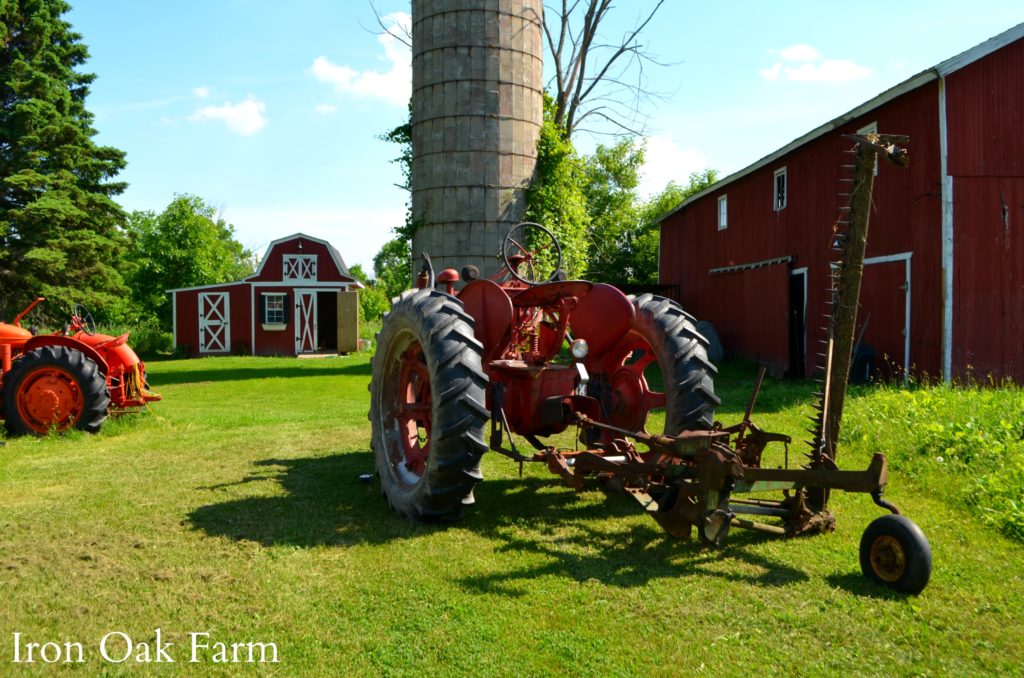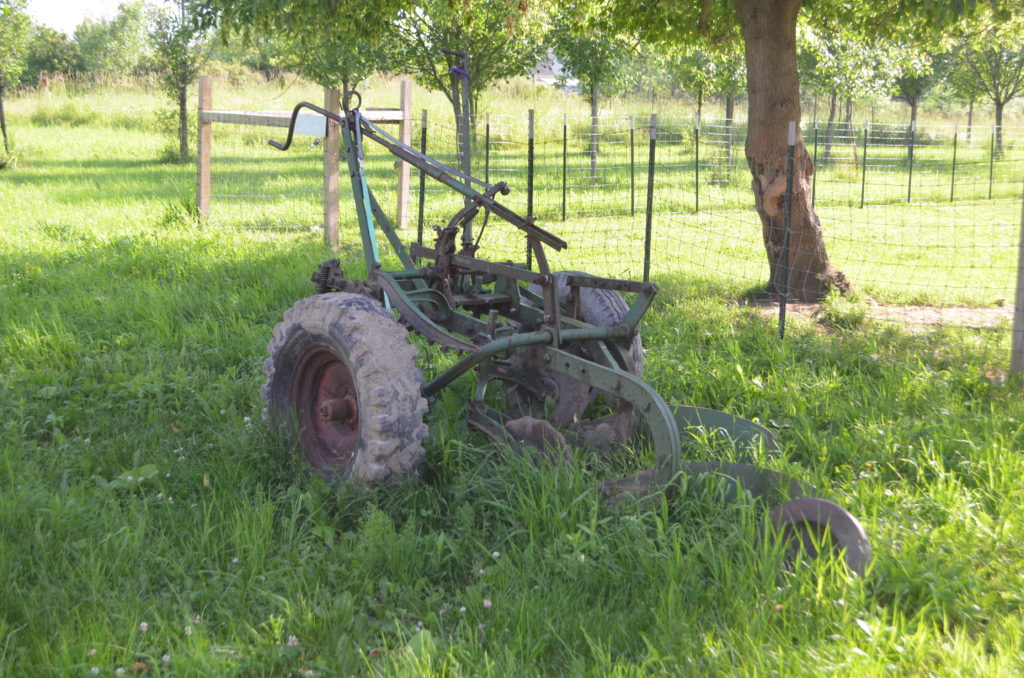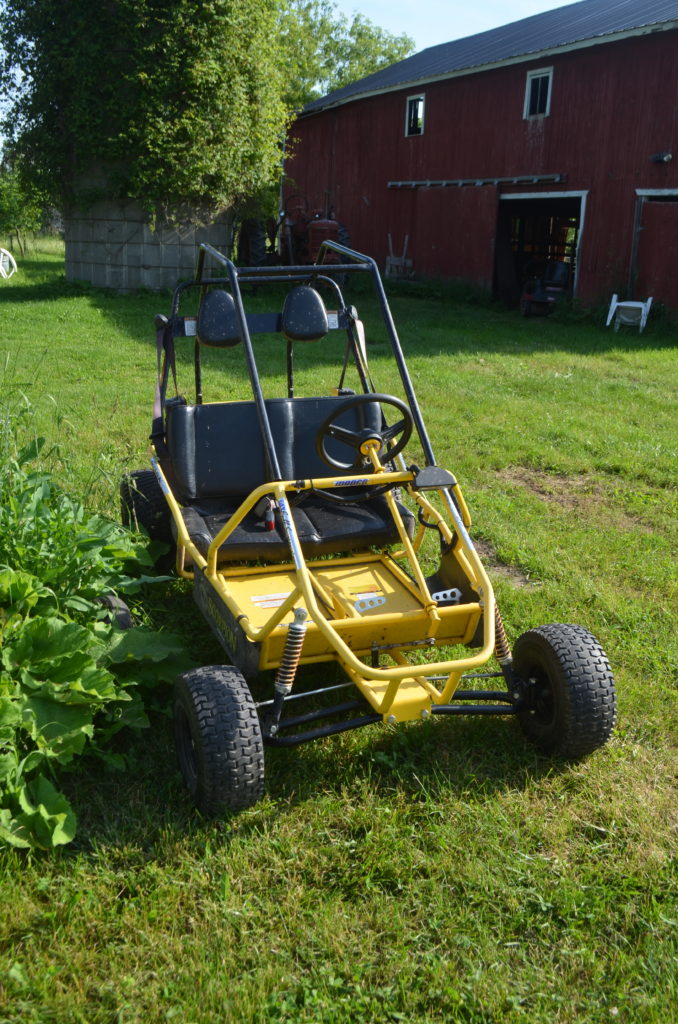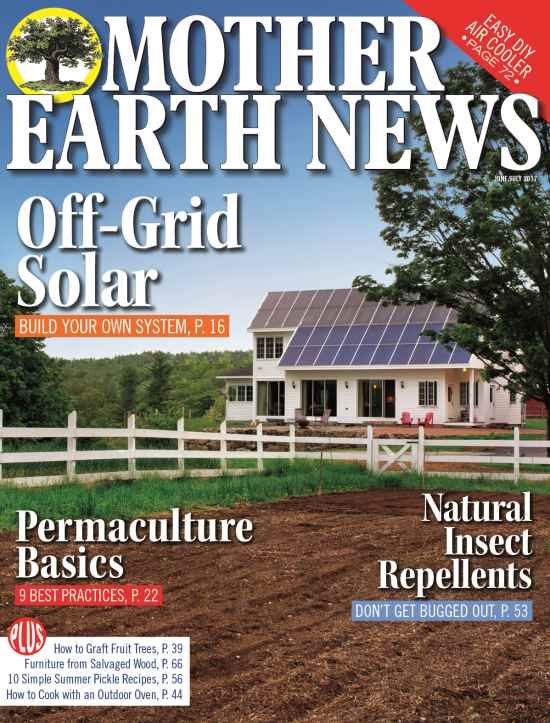In the 8 years we’ve lived on our farm, each summer, it seems, we invest in 1 or 2 large pieces of farm equipment. Our first purchase was a hay rake, then a sickle bar, then a baler. After that, we got a tractor-size rototiller, another sickle bar, a hay wagon and only this spring we bought a plow.
All this stuff takes up space on our property.
We also have 2 tractors, 2 go-carts, a rider lawn mower, several trailers, and a canoe! None of which fit in our barn when you consider storage for hay and animal living space.
After mowing the lawn one evening, in frustration, I told my husband that we need to pick one area of the property and park everything in the same place. Every time I mow the lawn, I have to mow around everything and then we have to move each piece of equipment and mow in the place where it was sitting. It’s annoying!

It occurred to me, after I threw my little tantrum, how blessed we are to have enough land to where we can designate an entire corner to the storage of our large equipment. Now granted…if we didn’t have a farm, we wouldn’t need some of this equipment. But still…we could still enjoy our canoe and even the go-carts even if we lived in an apartment.
A lot of times in homesteading articles I read about how you can make money with a small piece of land. But sometimes homesteaders have the land and need ideas as to how to utilize it.
This is one of those instances.
Do you have a large outbuilding that you’re not using? Could it be utilized as rental storage for small watercraft or ATVs?

Do you have vacant land where someone could park a boat and trailer? An RV? Extra work trucks?
This tip is a great one if you are starting out your homestead going into the fall or winter season. In this case, you’ll be past the “money-making” harvest season. However, often winter is the time when people are looking for storage space. They need a place to put their kayak, jet ski or rowboat through the winter.
Why would people need to rent storage space?
People who live in neighborhoods where there are association rules often aren’t allowed to have things like recreational vehicles visible from the road.

Small business owners like plumbers, electricians, handyman without a storefront, often have a hard time finding space for their employee run vehicles. Members of our family run a wildlife removal business and unfortunately their neighborhood doesn’t allow vehicles with signage in the driveway.
Manufactured homeowners who live in rental communities or apartment dwellers who want a boat, ATV or any other type of vehicle.
Do more than a handshake agreement
In reality, this type of endeavor can be as casual or as structured as you make it. If you have a friend who wants to store something in your yard or outbuilding for a seasonal price then you might feel comfortable keeping things relaxed.
But if you really want to have several renters, and offer your property in an “advertised” type of situation then I would do more than a handshake agreement.
Topics like this are difficult to write about in detail because the rules are different depending on the area you live, the laws in your state and what type of things you feel comfortable keeping on your land etc.. But if this seems like something you’d like to pursue here are a few things you should look into.
-Local laws in regard to storing items on your property. You might need to visit your township office to see if this endeavor would be considered a home business. You might also need to keep storage a certain distance from the road, other properties and/or out-of-sight.
-Insurance. You will want to contact your insurance company and find out how your homeowner’s insurance might be affected. You may also need to talk to your renters about insurance for their items on their end.
-Liability Waiver. You need to have a fair liability waiver to protect yourself in case of damage to renter’s property. This can include natural disasters and theft.
-Lockup, and hours of access. You’ll need to think about when you want people to have access to your property and to their items. Who has the keys? Is there a gate?
-Renter’s agreements. What happens if your renters lapse in payment? Is the equipment locked up until the bill is paid in full? Is there a late charge? How long do they have to pay? After that do you sell the equipment? This all needs to be detailed in a renter’s agreement.
Some Notes
Investing in security cameras and lights for the area might be a selling point to prospective renters.
Establish rules about how rental items should be stored, parked and maintained. Should items be covered? Would inexpensive car-ports be allowed? etc.










